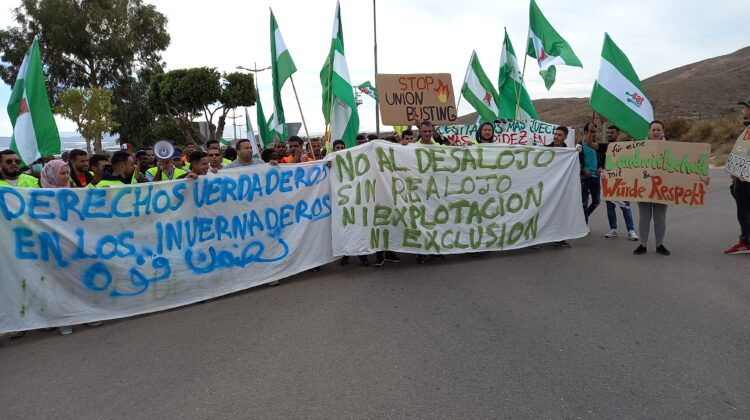SOC-SAT statement on International Migrant Workers’ Day
(Andalucía: December 16, 2022) In view of the increase in migratory flows in the world, in 2000 the UN General Assembly proclaimed 18 December as International Migrants Day, with the aim of promoting the exchange of experiences and opportunities for collaboration between countries and regions, in the face of the difficulties of international migration.
With the creation of this event, the aim is to make visible the challenges, difficulties and adversities faced by migrants around the world, as well as to call on the nations of the world to contribute to making migration a safe, regular and dignified process.
An important step for migration was taken in 2016, when the United Nations General Assembly adopted a set of measures in the form of the New York Declaration on Refugees and Migrants. This declaration recognises the positive work of migrants and commits to protect the safety, dignity, freedom and human rights of migrants.
Today, with globalisation, there is freedom of movement of goods and capital, but people are still subject to regulation. Currently in Spain, it is necessary to prove 3 years of residence and a one-year work contract in order to obtain residency. And with the new regulations, with two years of residence and proof of 6 months of work, without penalty for the employer, you can obtain the Arraigo Laboral, which does not include the right to pay unemployment or retirement contributions. There is no entry permit, so illegal emigration has to be resorted to. And obviously, no worker can reside for so long without working, which facilitates all kinds of exploitation and violation of rights. Including the fact that many employers, especially in the agricultural sector, charge their workers for making them an employment contract.
Immigration in Andalusia
However, the reality is very different in some places and economic sectors, especially in Andalusia. Where the vulnerability of the immigrant population is being used for greater labour exploitation, accompanied by social marginalisation.
In Almeria, Huelva or Seville, where industrial horticultural agriculture is being developed, there are growing settlements of farm workers without the minimum conditions of drinking water, electricity, sanitation and waste collection, in the face of the indifference of the municipal authorities. And exploitation with working hours longer than the established working hours and wages in many cases below the legal wage levels. Added to this is the neo-Nazi pressure being spread by VOX, with hoax and racist campaigns, with a strong presence in these localities among the business community and the local population.
Currently in Níjar – Almería, the town council has begun the administrative process to demolish the workers’ settlement of the El Walili camp, where some 500 residents live, without a housing alternative. Being aware that the workers have no alternative but to create other settlements, as they work in an isolated territory, bordering the Cabo de Gata Park, and without public transport. The residents of Walili, together with Soc-SAT, held a protest march on 25 November to the Níjar Town Hall. Further actions are planned. They demand that they should not be evicted until an alternative housing option is considered and that in the meantime they should be provided with access to basic community services.
In the last two years, the municipality of Nijar has increased cultivation by 6,000 hectares, the largest in the province of Almería, and is planning a further increase of 1,300 hectares, with no housing planned for these workers.

